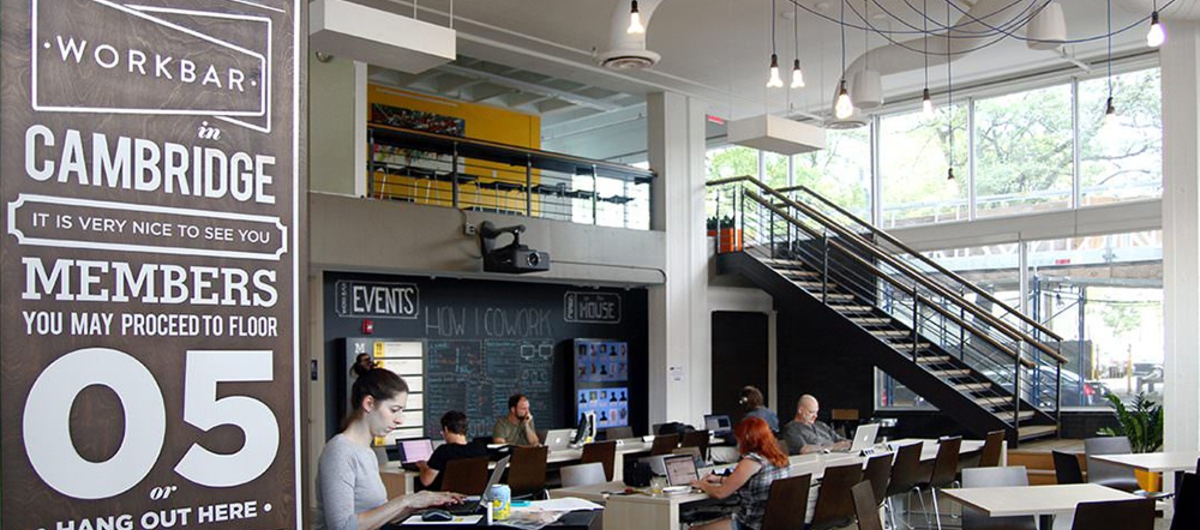Core Challenges
Operators pose challenges for brokers and brokers pose challenges for operators. What are the main issues and how can you overcome them? The main challenge for operators is working with brokers who are new to the coworking scene. Sandhouse points out that “traditional brokers might think a standard 3-7 year lease is better for clients and provides a higher commission. When in fact, the reverse could be true. Longer-term leases can take 6-9 months to close and many deals aren’t consummated; brokers can get paid much faster and close more deals within shorter time periods with coworking spaces.”
Search Office Space, on the contrary, are far from new to the coworking scene and have very close relationships with almost every provider in London. Where the broker is well acquainted with the market, Jon Posener suggests the challenge can often lie with the misconception of coworking. “For many of our clients, the concept is still very much associated with start-ups. Our team will often spend time explaining the benefits of flexible space to SME’s and large corporate companies.”
The next challenge for brokers is keeping track of availability, particularly for larger requirements of 50+ desks. Jon continues to explain how “coworking centres open and fill up quickly, especially in core markets. Demand for flexible office space as it an all-time high and supply often cannot keep up with demand.” The company is sent availability on a weekly basis by most operators, but it’s not in real time, which is required when spaces are sold and become available on a daily basis. Communication between operators and brokers is the crux of availability updates.
Danny Babington at Instant Offices reinforces this view: “It’s not only about keeping up with availability of space, but also the amount of operators offering such space. We have nearly 12,000 centres listed on our site so it’s important to display updated information for our partners so we can represent them in the best way.” Danny identifies additional challenges including scenarios where coworking spaces frequently change teams or develop new structures.
Given the need for real-time updates on the availability of coworking space in any given market, it will be interesting to see how fast the blockchain movement progresses in the coworking industry, considering its capability to deliver such updates and also increase the speed of closing membership deals through smart contracts.
Handling Disputes
Disputes can occur when there’s lack of clarity as to whether a lead was introduced by a broker or by someone else first. However, it doesn’t happen often and there are ways to avoid or better handle the situation. For example, Workbar has an online portal for brokers to submit referrals, meaning the information is time stamped. This prevents any ambiguity surrounding the order of introductions. Instant Offices note how vital it is for operators to agree to terms and conditions from the beginning, as well as having organised systems for accepting and rejecting leads. Further to this, Search Office Space identify close operator and competitor relationships as the key to solving disputes diplomatically and amicably.
Moving Forward
The key theme appears to be trust; brokers trust coworking providers to help them effectively deliver options to their clients and coworking providers trust brokers to represent their workspace and provide qualified leads specifically suited to their space. Whilst there may be challenges along the way, partnerships work well when focusing on the lead pipeline in a time-efficient manner. Search Office Space emphasise how “coworking products differ massively both visually and in price. We spend time understanding the client’s requirements before arranging a small viewing schedule to ensure we do not waste the clients or the operator’s time.”
In the future, operators like Sandhouse would like to see more brokers thinking of coworking spaces before traditional leases and brokers including Instant Offices would like to see continued growth of partnerships with greater emphasis on sharing ideas. Sales leads will no doubt continue to lean on brokers as consultative partners to discuss and benchmark options, whilst brokers keep operators up to speed on industry trends and demand for flexible space.
As the sheer amount of operators explodes, the market is also seeing more property developers and landlords launch their own coworking brands who can similarly benefit from broker relations. So regardless of whether you own or operate a coworking space, be sure to reach out to your local brokers; invite them to your space or visit their team and remember feedback is key to any long-term relationship.







